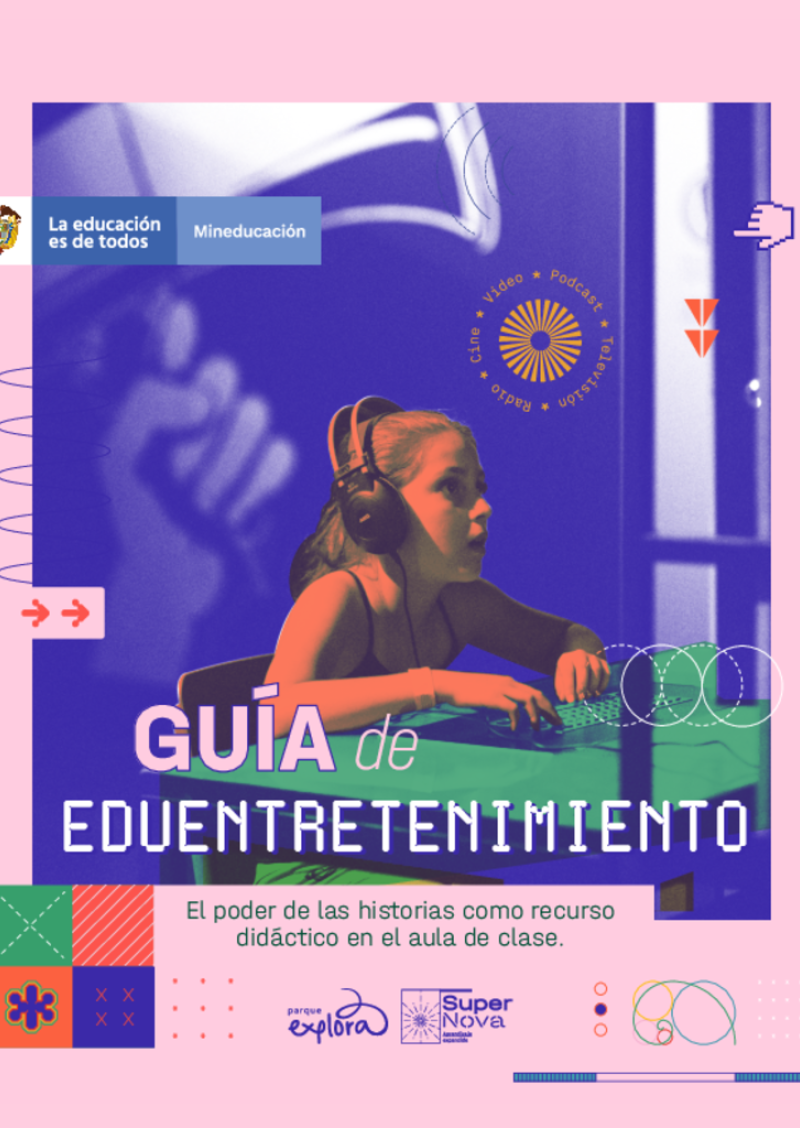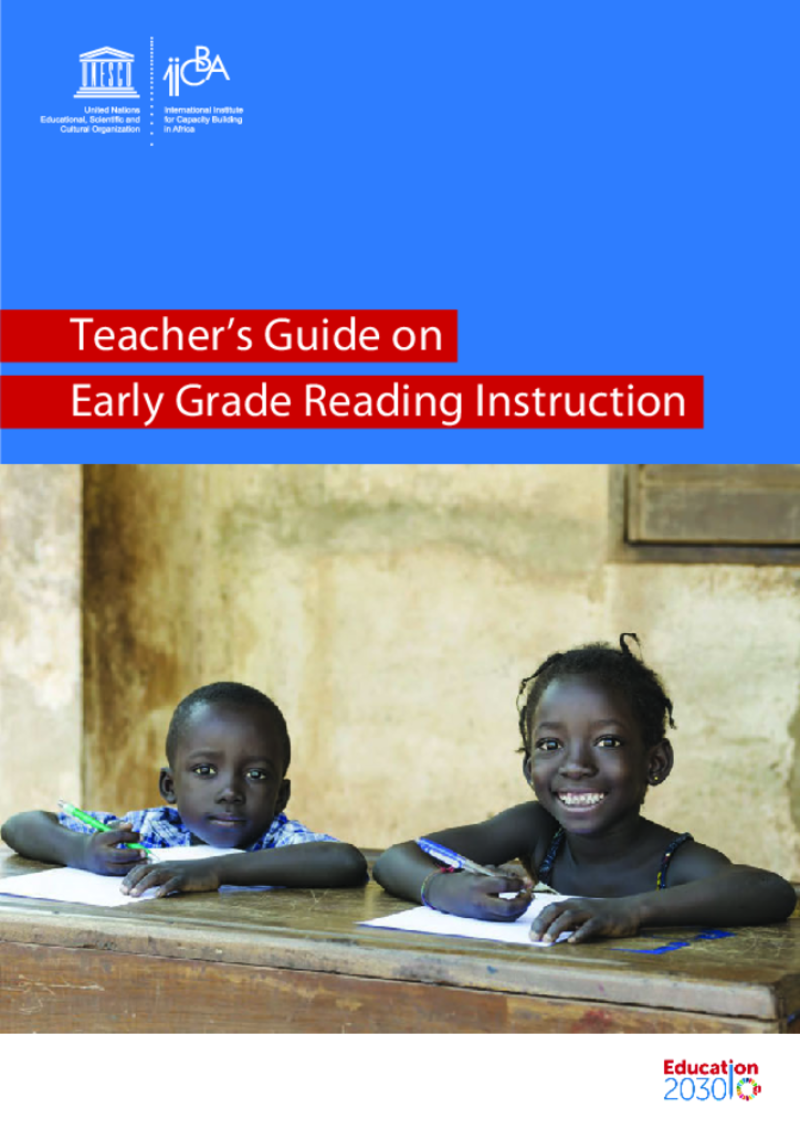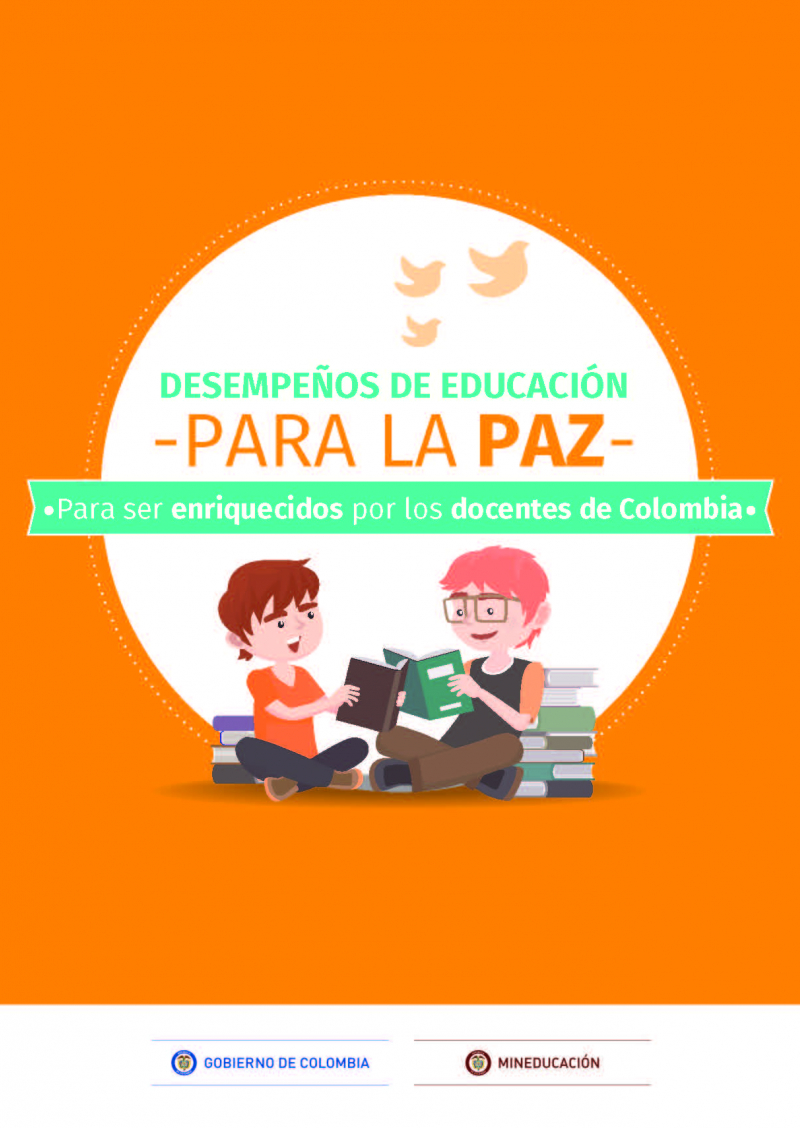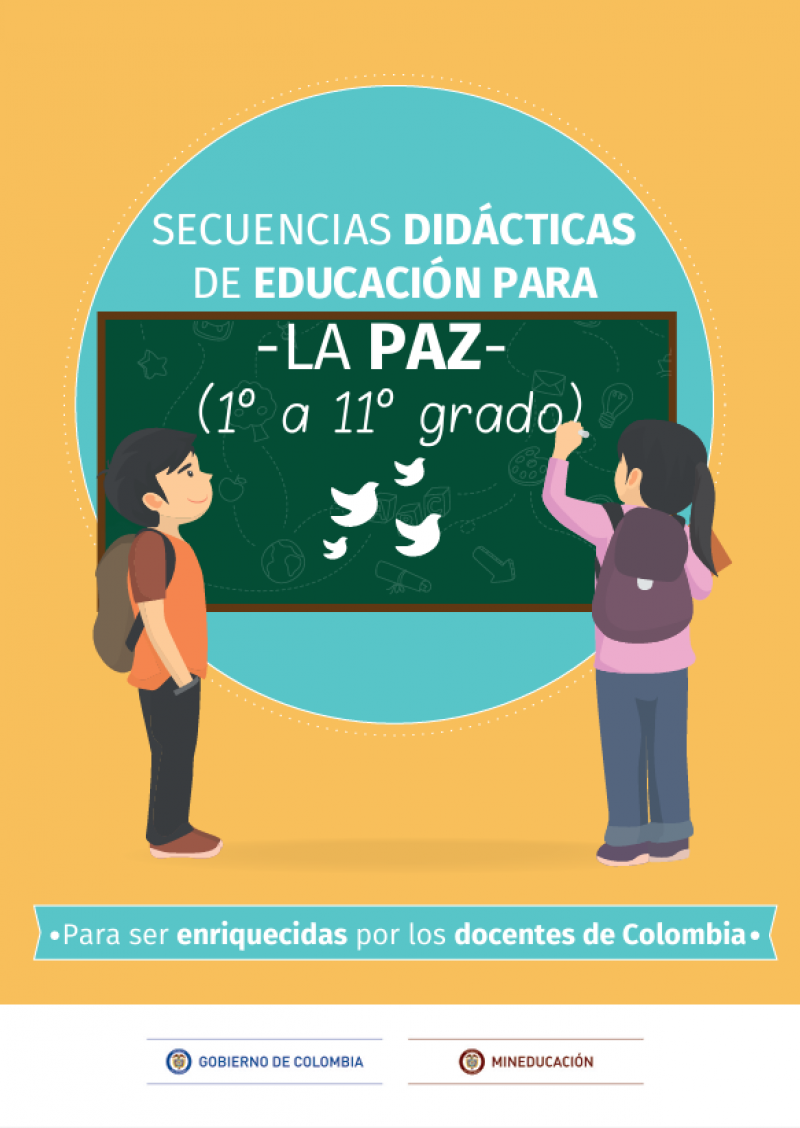Centro de Recursos para Docentes
Visualizar 1 - 13 de 13
La investigación social en el aula: un espacio de aprendizaje para la escuela de hoy
El objetivo de este plan es promover metodologías de investigación desde una edad temprana, facilitando la comprensión del entorno social y natural en el que viven los alumnos. Se proponen diferentes talleres adaptados a cada nivel educativo, los cuales incluyen una descripción detallada de la estructura y conceptualización, actividades prácticas a realizar con los alumnos y diversos procesos de evaluación, como autoevaluación, evaluación por pares y evaluación por el docente. Los talleres abordan distintos enfoques, incluyendo geografía, historia, ciencias sociales y pensamiento crítico, y están diseñados para que los alumnos puedan desarrollar su propia investigación basada en su contexto personal.
Guía de eduentretenimiento – El poder de las historias como recurso didáctico en el aula de clase
El eduentretenimiento es una metodología de comunicación definida por la UNESCO que se basa en narraciones como medio de transmisión del conocimiento. El objetivo es cautivar la atención de la audiencia para generar empatía y emociones, reconocidas como marcadores de aprendizaje. Se trata de una guía para el docente sobre cómo movilizar este tipo de fuente con sus alumnos en el aula o en otros contextos. Contiene también una diversidad de recursos con enfoque en áreas STEM (ciencia, tecnología, ingeniería, matemáticas).
Play & resilience: a toolkit for teachers, caregivers, and other stakeholders
Play is an easy, natural and universal practice that builds resilience. Play comes naturally to all children- and is a seemingly simple and light-hearted phenomenon. The power of play as a pathway to building resilience needs to be leveraged to provide children with the opportunity to further explore play in their home and school environments.
This toolkit is therefore premised on the objectives to build the capacity of various stakeholders such as caregivers/teachers, school managers, curriculum planners and policy makers who are key actors in the process of growth and development of children. It is also aimed at equipping these stakeholders with the knowledge and pedagogical skills to translate research, policy and curriculum to practical knowledge and activities for children in the school environment. The toolkit offers directions for facilitators who will be working with caregivers/teachers using the materials and resources provided and other relevant materials available in an environment where it will be used.
Teacher's guide on early grade reading instruction
Reading is a fundamental ability for all other learning activities. Students can learn only when they comprehend, and this requires appropriate reading skills in the first place. Appropriate reading skills support the learning of increasing amounts of instructional content. This is why children who fail to learn to read during their early years of schooling will encounter more difficulties in later grades and a higher risk of drop out. Quality early grade reading instruction is critical in preventing these challenges and risks as well as in protecting children’s rights to education and ensuring better chances of success in their life.
Teachers are at the center of reading instruction and they need to be trained with pedagogical knowledge and management skills in order to provide students relevant and quality instruction. It has however been noted that teachers in many countries, especially low-income countries in sub-Saharan Africa, lack the proper training and support on ways of teaching early grade reading to their students. Therefore, a comprehensive and practical guide on early grade reading is highly needed to bridge this gap.
This guide aims to empower teachers in Africa by equipping them with the knowledge and skills of early grade reading, including the simple identification of the main pillars of reading, lesson planning and classroom management, taking into account the context in Africa. Subsequently, these teachers will help their students build basic reading skills in their early years of schooling.
A Teacher's Guide for Arts, Music and Drama in Africa
Art, music and drama have had a pivotal role in the livelihood of human beings. This is clear by the wealth of literature, architecture, fine art, theater and music that define human past, present and future. The inherent creative ability and a yearning to express ourselves is what gives value to art, music and drama as companion components in human evolution.
This teacher's guide covers art, music, dance, drama, experiential learning, community engagement, and how to integrate these aspects into curriculum. Additionally, this document provides lesson plans for primary school students in these subject areas.
Assistive Technologies: Inclusive Teaching Guidelines for Educators
Assistive technologies encompass tools and services designed to enhance learners' independence, participation, and success, helping them reach their full potential. This guide explains how educators can use assistive technology to create an inclusive environment that supports diverse learning styles and information processing. It introduces various assistive technologies that cater to individual learner needs, helping them overcome challenges. Educators should view assistive technologies as resources for all students, integrating them into the classroom to ensure widespread benefit and minimize the risk of stigmatization.
Desempeños de educación para la paz
Este documento es una propuesta de diseños curriculares y desempeños de actividades a destinación de los docentes en el marco de la Cátedra de la Paz en Colombia. Propone actividades para alumnos desde el principio de la educación primaria, que se enfocan en el manejo de emociones y las interacciones con los demás, hasta el principio de la educación secundaria, con actividades enfocadas en competencias ciudadanas, y análisis sociohistórico. Está diseñado para ser apropiado y adaptado por los docentes.
Secuencias didácticas de educación para la paz
Este documento comisionado por el Ministerio de Educación y elaborado por universitarios propone secuencias pedagógicas en el marco de la Cátedra de La Paz en los establecimientos educativos preescolar, básica y media. Tiene como fin garantizar el fortalecimiento de una cultura de paz a través de los espacios de aprendizaje desarrollando competencias emocionales y cognitivas. Se proponen aquí algunas secuencias didácticas a disposición de los docentes para reproducir o adaptar en sus aulas.
Teaching to prevent atrocity crimes: a guide for teachers in Africa
This is UNESCO's first resource with a regional focus on teaching to prevent atrocity crimes. It was developed with the United Nations and in partnership with the UNESCO International Institute for Capacity Building in Africa (IICBA). The guide was informed by exchanges with African stakeholders and advisors and tested through a piloting exercise with African teachers and students. It provides principles for teachers to consider in facilitating learning and constructive discussions with their students.
Transformative pedagogy: a teachers’ guide for peace and resilience building in North Africa
This guide is designed to build the capacity of teachers so that they are informed and empowered in why and how to educate for peace-building. It offers an analysis of conflict, examines the role of ethics, expands on the elements of transformative pedagogy. It also provides practical tools to support learners’ active participation in shaping the world around them and assess learners’ understanding of peacebuilding concepts and skills, all while engaging the community.
Youth empowerment for peace and resilience building and prevention of violent extremism in Sahel and surrounding countries: a guide for teachers
This guide is designed to build the capacity of secondary school teachers and teacher educators to integrate a peace and resilience building approach in education for the prevention of violent extremism. It builds on the Transformative Pedagogy for Peace-building guide and it was contextualized to the context the Sahel and surrounding countries.
The guide redefines the role of teachers, inviting them to make a paradigm shift in adopting a transformative pedagogy that allows learners to actively participate in their own learning. Transformative pedagogy builds on active pedagogy and the competencies-based approach. The guide concludes with engaging learning activities to support experiential learning.
Transformative pedagogy for peace-building
This guide is designed to build the capacity of teachers so that they are informed and empowered in why and how to educate for peace-building. It offers an analysis of conflict, examines the role of ethics, expands on the elements of transformative pedagogy and provides practical tools to assess learners’ understanding of peacebuilding concepts and skills. It concludes with 20 engaging activities to support experiential learning.
The guide was developed as part of the "Teacher Training and Development for Peace-building in the Horn of Africa and Surrounding Countries project", which has as a long-term goal to develop a critical mass of teachers able to implement effective teaching and learning essential for preparing peace-loving and productive youth in Eritrea, Ethiopia, Kenya, Somalia, South Sudan and Uganda.
Transformative pedagogy for learning to live together in Southern Africa. A practical guide
This guide is designed to build the capacity of teachers and education planners so that they are informed and empowered in why and how to educate for living together and epace building . It offers an analysis of conflict, examines the role of ethics, expands on the elements of transformative pedagogy and provides practical tools to promote learners’ active participation in shaping the world around them and assess their understanding of citizenship and peacebuilding concepts.
Transformative pedagogy empowers both teachers and learners. It encourages learners to be reflective and critical thinkers capable of contributing meaningfully as members of local and global communities. It also redefines the role of teachers. Teachers become facilitators with the disposition, knowledge, skills and commitment to support students in developing their full potential as peacebuilders. This guide can serve in universities, teacher training colleges and schools.











